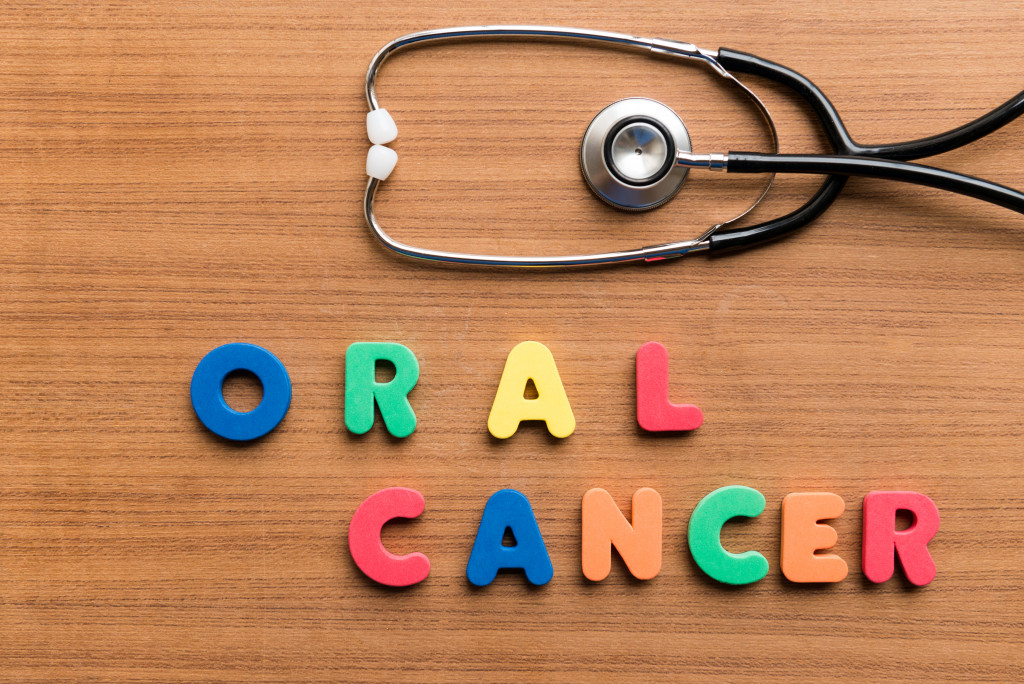Many oral diseases out there can affect our functioning and make us feel uncomfortable about ourselves. However, there is nothing worse than having oral cancer.
Oral cancer is one of the most complex diseases in general. It’s a particularly rare disease, with only about 50,000 Americans diagnosed with it, many of which are above the age of 62. But everyone is vulnerable to the disease, including children. It’s a challenging disease to cure, but it’s highly preventable. Once armed with the necessary knowledge, you can avoid this disease entirely.
What Is Oral Cancer?
Explaining oral cancer is no easy task. In some situations, oral cancer can seem like any other disease out there. It has the symptoms of pain, swelling, and bleeding gums. In addition, some people experience ear pain, pains associated with swallowing or eating, and persistent sores on the cheek. Oral cancer can also lead to multiple loosened teeth and the extraction of these teeth in extreme cases.
However, one of the most telling symptoms of oral cancer only happens in the later stages of the disease. A visible lump or bump can form underneath your teeth or your gums. Many oral diseases don’t have such a symptom, but sadly, once a visible lump can be seen in various parts of your mouth, oral cancer has reached one of its critical stages.
Thankfully, oral cancer is not as fatal when compared to other forms of cancer. It’s estimated that people with early stages of cancer have an 85% survival rate, while those who have reached the severe stages of such cancer have only 65%. With so many symptoms similar to other forms of oral diseases, how can you know exactly if you have oral cancer?
Diagnosis
Diagnosing oral cancer has several parts. First of which is visiting your local dentist and getting a general checkup. Your dentist will check your mouth for any signs of oral diseases. They will look for abnormal tissue growth and small lumps inside your mouth. If they have noticed some signs of oral disease, they will usually check you for oral cancer.
They will conduct a biopsy, and they will require to get a piece of tissue from your mouth. If you have dental anxiety, we suggest you get sedated during the process. The biopsy is the only way to be sure if you have oral cancer or not.

Treatment
There is no specific treatment for oral cancer. Like any other form of cancer out there, you must undergo chemotherapy to kill the cancer cells. It could easily take months and years. For those still in the early stages of cancer, your doctor might suggest surgery to remove the tumor in your mouth. This treatment has been proven effective in the early stages but becomes useless once cancer has reached other parts of the body.
Prevention
Most experts believe that just like any other cancer, you are better off preventing it from happening. Here’s how you can lower your risk of oral cancer.
-
Limit Sun Exposure
Sun exposure is one of the primary reasons why people develop oral cancer on their lips. Prolonged sun exposure, especially during childhood, is the leading reason why children develop oral cancer at such an early stage. If it’s unavoidable, experts suggest that you use sun-protective lotions whenever you know you’ll be under the sun too long.
-
Avoid Smoking
Another leading reason for oral cancer is smoking. Smoking has been linked to all sorts of oral diseases. One of the most common associated diseases with smoking is periodontal disease. However, there is also a chance that you could develop oral cancer through excessive smoking.
If you want to avoid oral cancer and other oral diseases out there, avoid smoking. Experts believe that even controlled smoking or vaping with low nicotine content is enough to damage your gums and eventually develop oral cancer in the future.
-
Get Checked for Human Papillomavirus (HPV)
HPV is highly comorbid with oral cancer. If you’re planning to visit the doctor to get checked for oral cancer, consider getting checked for HPV first. You could likely have both in your system, and most probably, you’ll have to treat HPV first before getting into chemotherapy for your oral cancer.
-
Maintain Good Oral Hygiene
Lastly, maintaining good oral hygiene is still the best way to prevent oral cancer. Good oral hygiene can protect your mouth from all sorts of oral diseases, as well. So make sure to brush and floss two times a day and visit dental professionals whenever you feel any sort of pain in your mouth.
Oral cancer is one of the most complex oral diseases out there. But through knowledge and some prevention techniques, you can avoid the disease in your lifetime.
